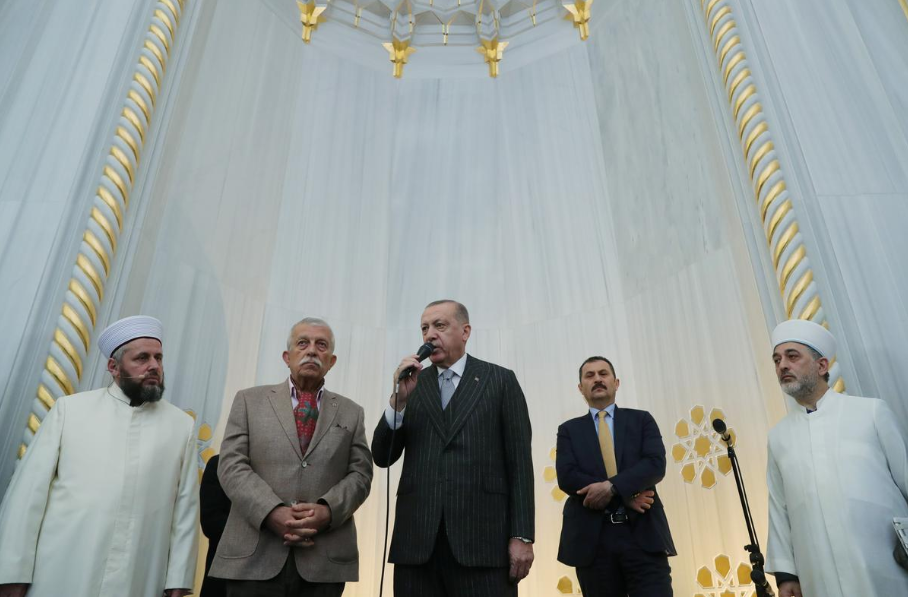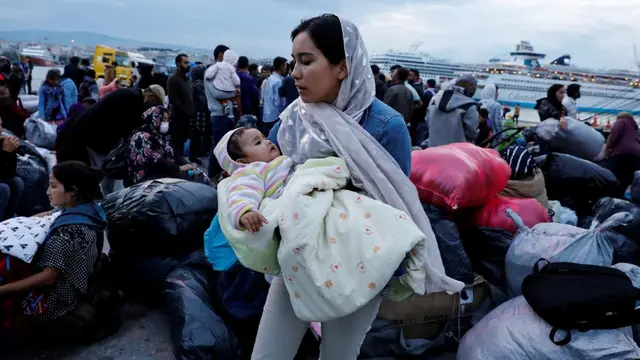The European Union (EU) is scrambling for a new agreement with Turkey to prevent migrants from Syria, Iraq, Afghanistan and beyond flooding into the EU. But there is little sign so far that Ankara is ready to accept the terms Brussels is offering.
Since Turkey announced on February 28 that it would no longer abide by a 2016 deal to keep refugees on its territory, accusing the EU of falling short on commitments of financial support, some 35,000 migrants have massed on the border with Greece where they have been thrust back by Greek forces.
EU foreign policy chief Josep Borrell said on Friday in Zagreb, where its foreign ministers met to weigh the crisis, that member states were willing to offer more money to Turkey beyond the six billion euros (6.79 billion U.S. dollars) pledged in 2016.
But Turkey, which hosts almost four million refugees and migrants, first had to stop using migrants as a bargaining chip. "Turkey has a big burden ... and we have to understand that," Borrell said. "But at the same time, we cannot accept that migrants are being used as a source of pressure."
Even if the EU does decide to offer more money, it's not clear it will be sufficient to assuage Turkey or be the kind of support that Ankara, which is simultaneously involved in conflicts in Syria and Libya, really wants.

Turkish President Tayyip Erdogan addresses worshippers following Friday prayers at Camlica Mosque in Istanbul, Turkey, March 6, 2020. /Reuters
So far, the EU has retained oversight over the use of the funds it disburses. But an EU diplomat involved in discussions in Zagreb said the Turks wanted funds paid directly to them, something EU member states are very unlikely to agree to.
Instead, officials have raised the possibility of topping up an existing fund to support refugees' education with around 500 million euros, which would keep the program running until the end of 2021. It remains unclear whether that will happen.
Keen to avoid a new refugee influx into Turkey from the war in Syria's north, Turkish President Tayyip Erdogan reached a deal with President Vladimir Putin on Thursday to halt fighting between Russian-backed Syrian forces and Turkish troops.
On his flight back from Moscow, Erdogan appeared unimpressed by what the EU was offering so far, saying the Union was always offering help but then falling short or not stepping up.
"The West unfortunately has many faces," he told reporters. "From the EU... they made us some promises as well. I don't know if there will be a result from there or not."
Geopolitical calculations
Underpinning Turkish pressure on the EU over migrants are geopolitical considerations.
To keep Syrian President Bashar al-Assad's forces pushed well back and shore up Turkish interests in northern Syria, where Ankara backs anti-Assad rebels, Erdogan wants more support from fellow NATO members and the imposition of a no-fly zone.
Asked whether that was what Ankara was demanding beyond extra funds to deal with refugees, Borrell did not dismiss the question, but said it was not for the EU to decide.
(Cover image: Refugees and migrants arrive on a passenger ferry from the island of Lesbos at the port of Piraeus, Greece, October 7, 2019. /Reuters)
Source(s): Reuters
 简体中文
简体中文

